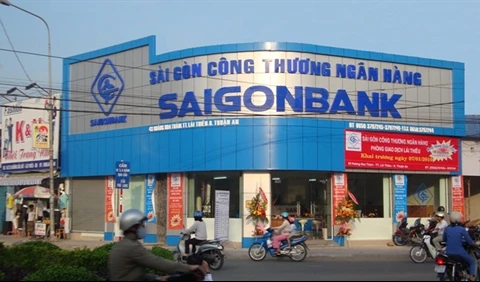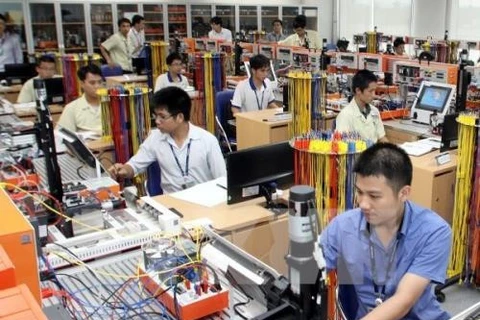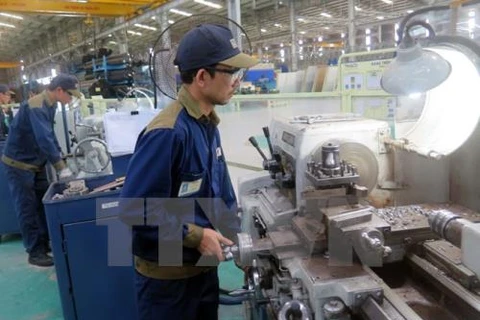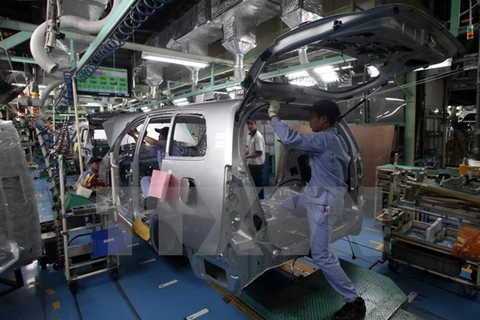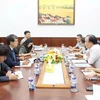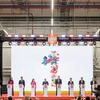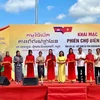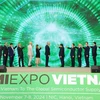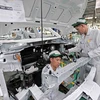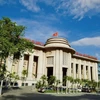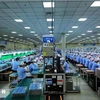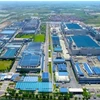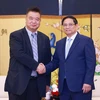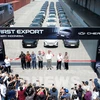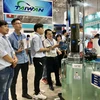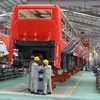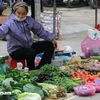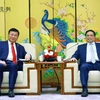Hanoi (VNA) – Up to 78 percent of businesses have been positive about Vietnam’s economy, according to a survey on the private equity (PE) sector conducted by Grant Thornton Vietnam, which provides assurance, tax and advisory services.
In this survey, the 16th edition, the respondents expressed optimism towards Vietnam’s investment outlook with regards to the increase in investment attractiveness and level of investment activities. Vietnam has been seen as the second most preferred destination for PE investors in Southeast Asia.
The transportation and logistics sectors gain more interest from PE investors, increasing seven percent compared to the firm’s previous survey.
Meanwhile, the retail and food and beverage maintain the position as the top two most attractive sectors for PE transactions, the survey revealed.
With the growth of the middle income class among its population of 94 million, the influence of western lifestyle and increasing disposable incomes, food and beverage remains the prominent industry in terms of rapid growth and foreign investment inflow.
Besides the increase of e-commerce, the sector is growing and expanding rapidly in terms of retail store chains, distribution channels, and retailing culture which is attracting attention from foreign retail giants such as Emart, AEON, Big C, Lotte and 7-Eleven which has entered the market through franchise agreements.
In terms of sources of deals, the equitisation of state-owned enterprises (SOEs) has made its way to the top, with 52 percent agreement from PE participants.
Equitistation provides PE investors with opportunities to penetrate the Vietnamese market through investment in key areas such as telecommunications, oil and gas trading, infrastructure and retail.
It is forecast that there will be a focus more on quality of companies being equitised rather than quantity in 2017.
The report shows that in terms of investment attractiveness, PE investors consider Vietnam’s investment environment to be more attractive and extremely attractive accounting for the largest proportion, with 72 percent illustrating a similar trend as in 2016.
Despite the expected demise of the Trans-Pacific Partnership (TPP) agreement, the respondents claimed that it will not negatively impact the Vietnam economic situation as Vietnam is party to 16 other free trade agreements, including those with the Republic of Korea (RoK), the EU, Russia and ASEAN.
Therefore, 87 percent of survey responses foresee an increase in the level of investment activity in Vietnam in the next 12 months.
The formation of the ASEAN Economic Community is also expected to bring about more opportunities for Vietnam.
Apart from advantages such as abundant labour force and the development of the middle income class, the survey, however, pointed out that corruption, constraint of the national budget, weak competitiveness from small-and medium-sized enterprises as well as restrictions on infrastructure are potential problems for the economy in the future. -VNA
In this survey, the 16th edition, the respondents expressed optimism towards Vietnam’s investment outlook with regards to the increase in investment attractiveness and level of investment activities. Vietnam has been seen as the second most preferred destination for PE investors in Southeast Asia.
The transportation and logistics sectors gain more interest from PE investors, increasing seven percent compared to the firm’s previous survey.
Meanwhile, the retail and food and beverage maintain the position as the top two most attractive sectors for PE transactions, the survey revealed.
With the growth of the middle income class among its population of 94 million, the influence of western lifestyle and increasing disposable incomes, food and beverage remains the prominent industry in terms of rapid growth and foreign investment inflow.
Besides the increase of e-commerce, the sector is growing and expanding rapidly in terms of retail store chains, distribution channels, and retailing culture which is attracting attention from foreign retail giants such as Emart, AEON, Big C, Lotte and 7-Eleven which has entered the market through franchise agreements.
In terms of sources of deals, the equitisation of state-owned enterprises (SOEs) has made its way to the top, with 52 percent agreement from PE participants.
Equitistation provides PE investors with opportunities to penetrate the Vietnamese market through investment in key areas such as telecommunications, oil and gas trading, infrastructure and retail.
It is forecast that there will be a focus more on quality of companies being equitised rather than quantity in 2017.
The report shows that in terms of investment attractiveness, PE investors consider Vietnam’s investment environment to be more attractive and extremely attractive accounting for the largest proportion, with 72 percent illustrating a similar trend as in 2016.
Despite the expected demise of the Trans-Pacific Partnership (TPP) agreement, the respondents claimed that it will not negatively impact the Vietnam economic situation as Vietnam is party to 16 other free trade agreements, including those with the Republic of Korea (RoK), the EU, Russia and ASEAN.
Therefore, 87 percent of survey responses foresee an increase in the level of investment activity in Vietnam in the next 12 months.
The formation of the ASEAN Economic Community is also expected to bring about more opportunities for Vietnam.
Apart from advantages such as abundant labour force and the development of the middle income class, the survey, however, pointed out that corruption, constraint of the national budget, weak competitiveness from small-and medium-sized enterprises as well as restrictions on infrastructure are potential problems for the economy in the future. -VNA
VNA

